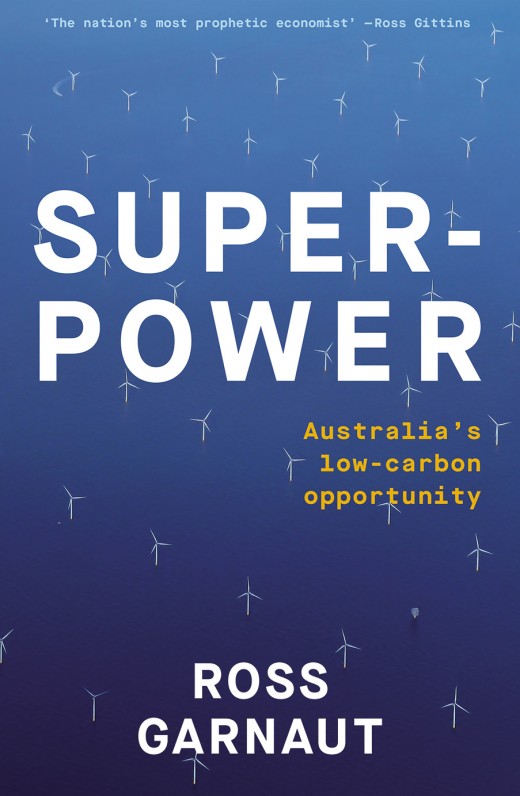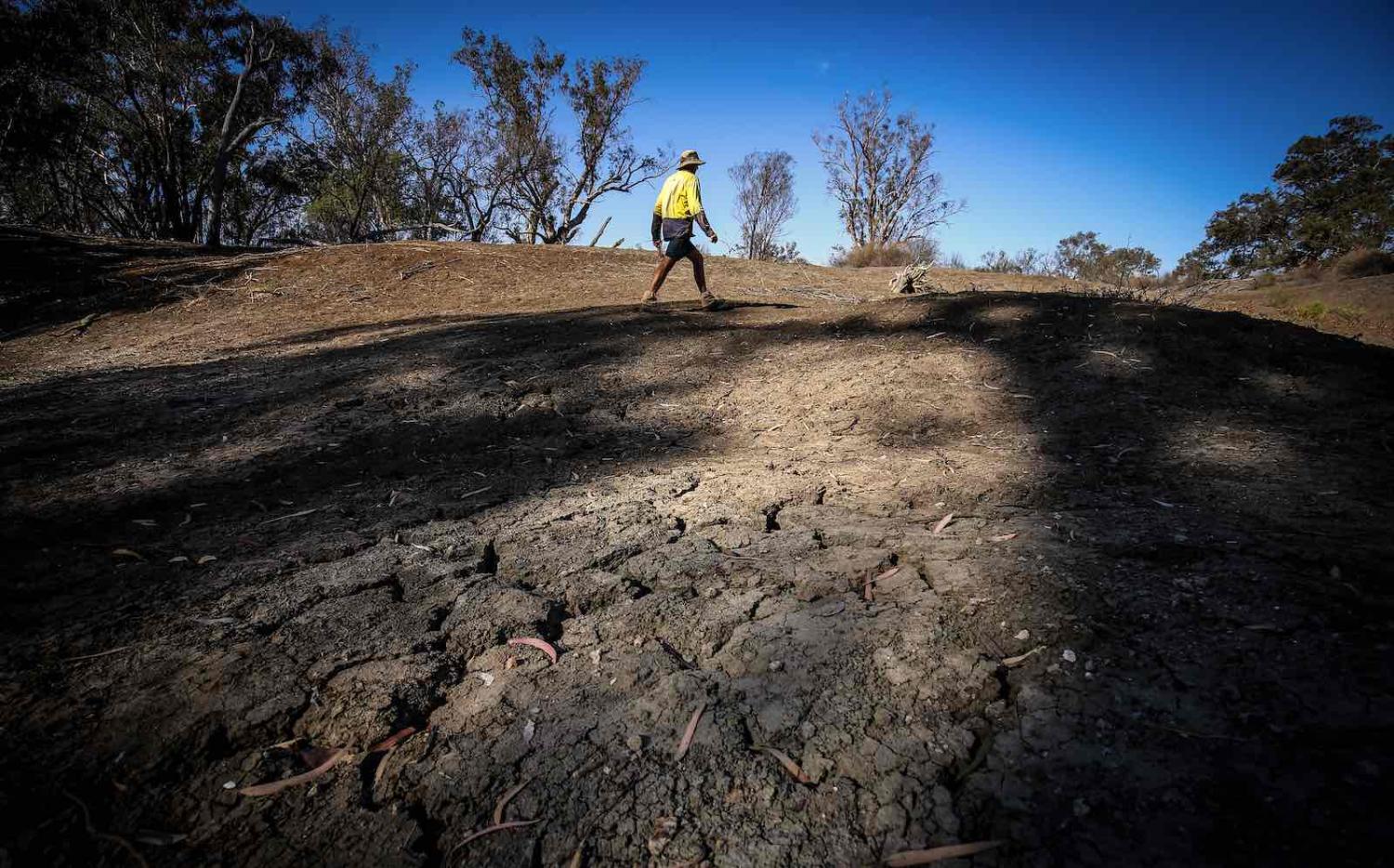Book Review: Ross Garnaut, Superpower: Australia’s Low-Carbon Opportunity, La Trobe University Press, 2019)
 If anyone in Australia deserves the somewhat overused epithets of “public intellectual” or even “policy entrepreneur”, it’s Ross Garnaut. Over a long and distinguished career, he has made a number of seminal contributions to public policy, most notably, perhaps, in accelerating Australia’s economic engagement with East Asia.
If anyone in Australia deserves the somewhat overused epithets of “public intellectual” or even “policy entrepreneur”, it’s Ross Garnaut. Over a long and distinguished career, he has made a number of seminal contributions to public policy, most notably, perhaps, in accelerating Australia’s economic engagement with East Asia.
Even more important, in my view – but notably and revealingly less influential – have been his analyses of Australia’s environmental problems and possible responses. A long-standing champion of carbon pricing, his detailed proposals for transforming structure of the Australian economy proved too politically challenging for successive Australian political leaders to implement successfully.
Fortunately, Garnaut is nothing if not persistent. Superpower may be his most important book yet, and is another timely, credible, and persuasive contribution to a public policy debate that has been noteworthy primarily for incompetence, rancour, partisanship, short-termism, and what economists delicately describe as “sub-optimal outcomes”.
Only the most recalcitrant, blinkered, and self-interested could argue with much of the blueprint outlined here. That doesn’t mean they won’t, of course.
This book is important and ought to be compulsory reading for our political elites and anyone vaguely interested in the future of the country and/or their offspring, for two principal reasons. First, and most importantly (and remarkably), it’s credibly optimistic about Australia’s prospects. Given that most of the country seems to be on fire as I write this, and that our political leaders are unwilling to even discuss the underlying problems, this is no small achievement in itself.
Second, and the reason the optimism is warranted, is that Garnaut lays out a detailed and potentially workable plan for Australia’s economic and (much more importantly) environmental future that does not end in tears. On the contrary, if implemented, Garnaut’s ideas look plausible, at least to this reviewer, and worthy of urgent consideration by the nation’s policymakers.
It is, of course, one thing to have good ideas, quite another to get those with the capacity to implement them to do so. This is precisely what happened to Garnaut’s environmental policy initiatives, which proved much less palatable than his earlier economic blueprint. The record of environmental policy over the last decade in particular does not inspire confidence, yet hope springs eternal.
One reason for my own unaccustomed and cautious optimism is that Garnaut lays out a detailed roadmap with which to get from where we are – which almost no one thinks is environmentally or even politically sustainable – to a place in which Australia “will emerge as a global superpower in energy, low-carbon industry and absorption of carbon in the landscape”.
Yes, this does sound intuitively unlikely, given recent problems in the agricultural sector, the demise of manufacturing, and general public policy “tangle”. But that is also why anyone who has potentially workable ideas in this context ought to be taken seriously as a matter of urgency. It is, after all, one thing to be “woke” about the nature of the problems we collectively face, but it’s quite another to have some plausible ideas about what to do about them.
The transition to zero-emissions electricity is the “cornerstone of the decarbonization of the Australian economy”, according to Garnaut. Unsurprisingly, perhaps, increasingly cheap forms of renewable energy are at the heart of this and the basis for a linked transformation and regeneration of manufacturing activity. Rather than simply shipping minerals offshore, they can be processed domestically in energy-intensive ways in which Australia potentially enjoys a huge comparative advantage.
Not only does Australia’s diminished manufacturing sector stand to benefit, though – so does agriculture. Carbon sequestration is envisaged as an integral part of a restructured economy, taking advantage of, and building on, Australia’s existing high levels of vegetation to become a global exporter of carbon credits. Interestingly and counter-intuitively, Garnaut thinks Australian farmers could actually be at the forefront of developing meat substitutes as diets shift in a new more sustainable international order.
All sounds a bit too good to be true? Perhaps. There is one major problem, which Garnaut recognises: none of this is likely to happen “without effective regulation in the public interest”. Given our political leadership’s rather underwhelming recent record of defining, let alone acting in, the national interest, one may be forgiven a little scepticism.
Whether we collectively have the capacity to develop “innovation in policy, business management and [the] application of new technologies” remains to be seen. The fact that there are seemingly feasible options being developed by credible public intellectuals is not just optimism-inducing; it also means that policymakers can’t claim that there aren’t any workable solutions on offer.
Only the most recalcitrant, blinkered, and self-interested could argue with much of the blueprint outlined here. That doesn’t mean they won’t, of course. Indeed, many of them currently occupy the commanding heights of the political and economic system. And yet if we can’t address these problems in a country like Australia with all of its compelling reasons for immediate action – many of which are also surprisingly positive and in our collective interest – why would we expect any other country to do so? Much hinges on the answer to that question, and not just for the people of this country.

